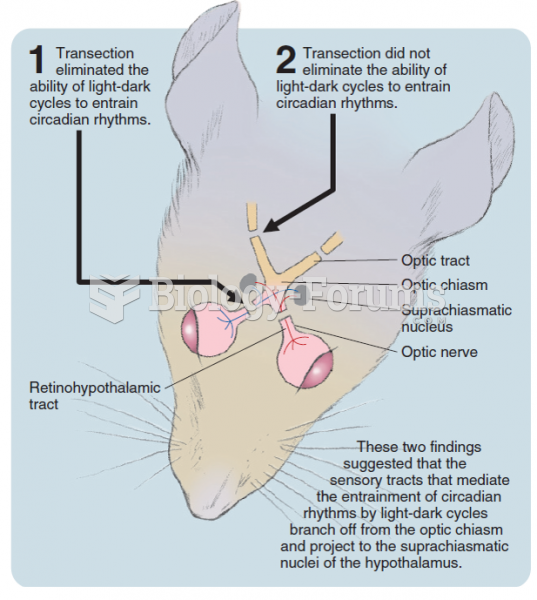|
|
|
Though methadone is often used to treat dependency on other opioids, the drug itself can be abused. Crushing or snorting methadone can achieve the opiate "rush" desired by addicts. Improper use such as these can lead to a dangerous dependency on methadone. This drug now accounts for nearly one-third of opioid-related deaths.
Nearly 31 million adults in America have a total cholesterol level that is more than 240 mg per dL.
A seasonal flu vaccine is the best way to reduce the chances you will get seasonal influenza and spread it to others.
In 1835 it was discovered that a disease of silkworms known as muscardine could be transferred from one silkworm to another, and was caused by a fungus.
More than nineteen million Americans carry the factor V gene that causes blood clots, pulmonary embolism, and heart disease.







